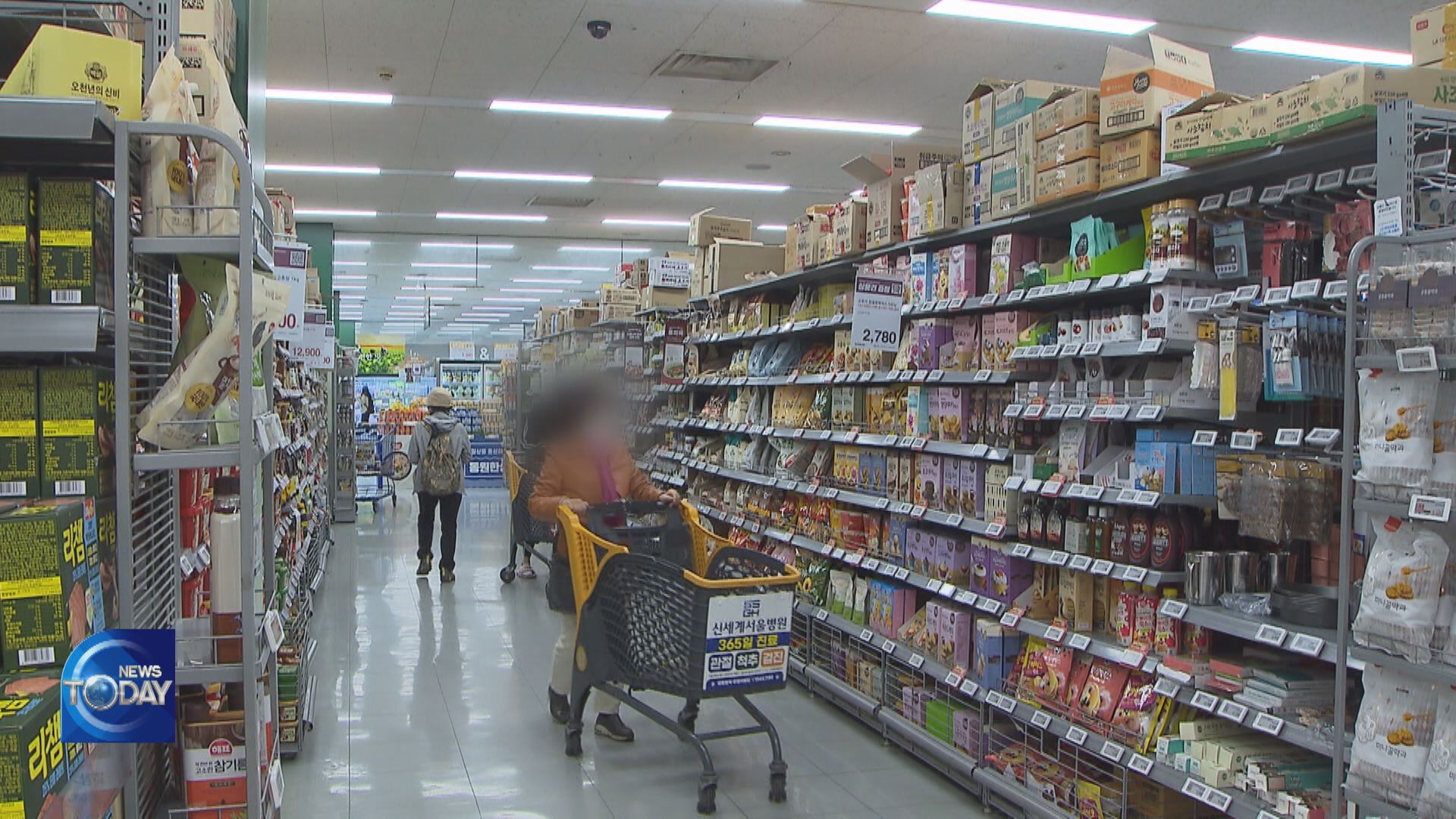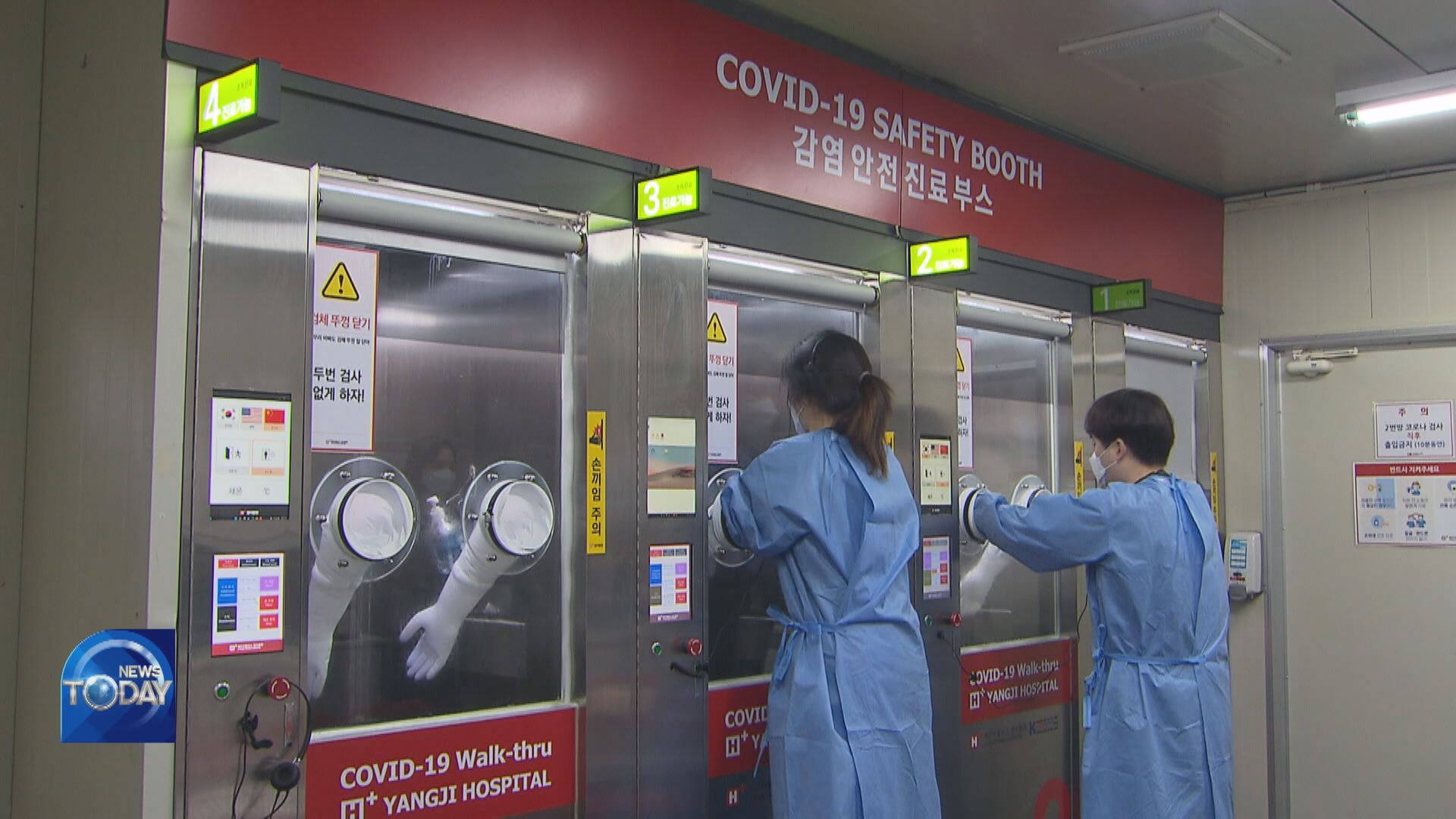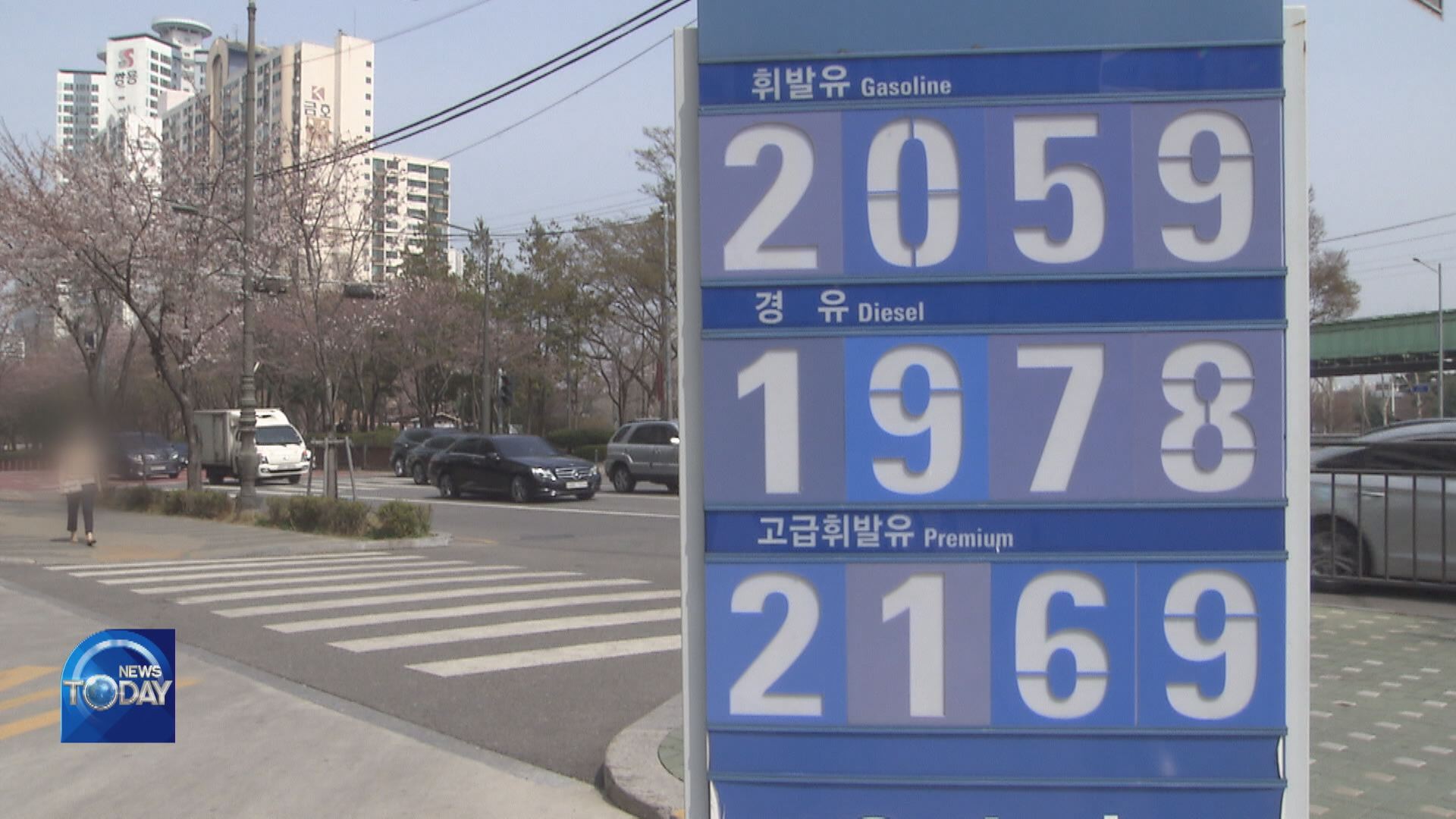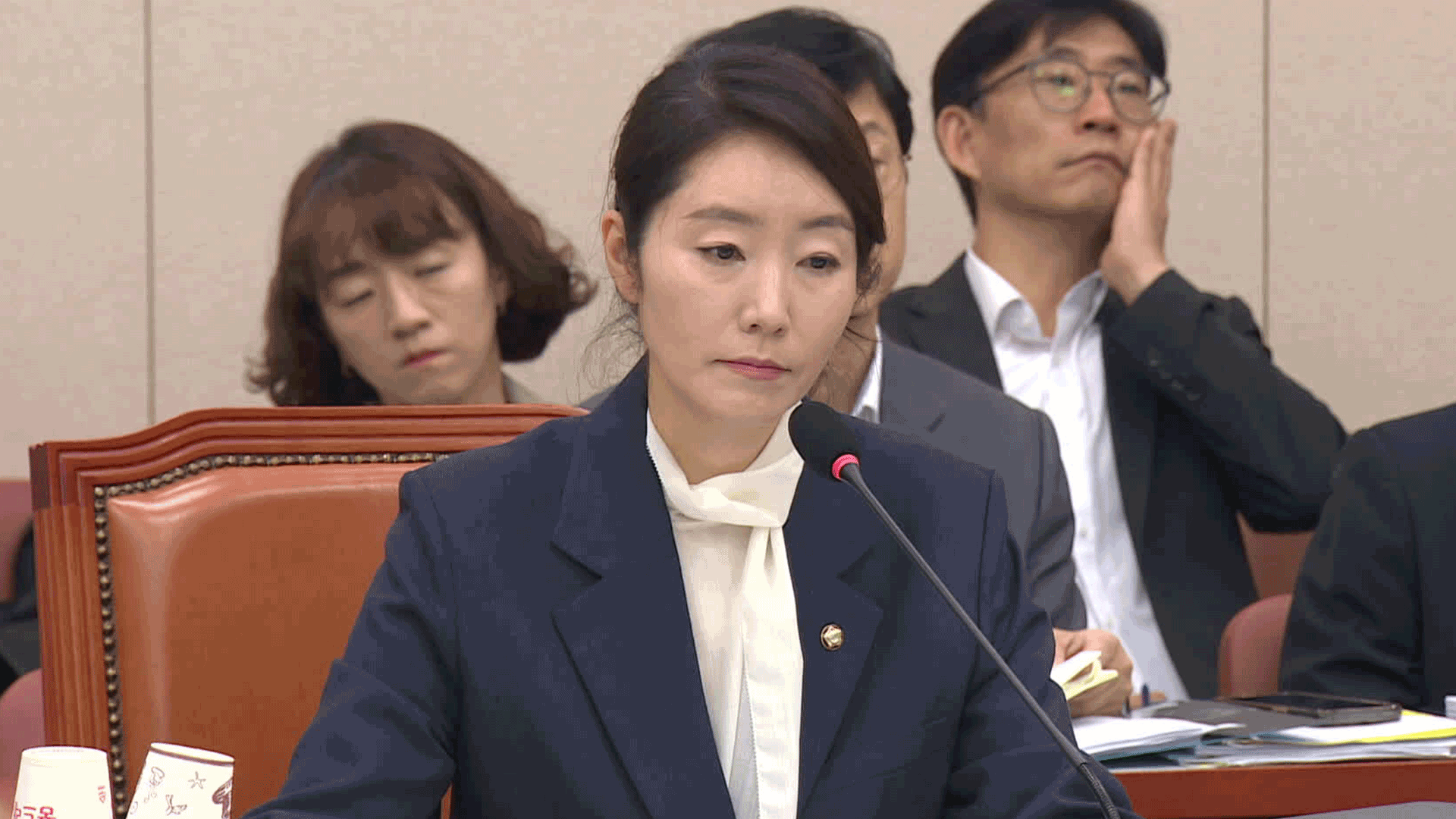CONSUMER PRICE SURGE CONTINUES
입력 2022.04.06 (15:02)
수정 2022.04.06 (16:45)
읽어주기 기능은 크롬기반의
브라우저에서만 사용하실 수 있습니다.
[Anchor Lead]
Prices of goods keep soaring. Last month, consumer prices rose 4 percent, recording the highest increase in more than ten years as a result of surging oil prices.
[Pkg]
A supermarket in Seoul. Customers hesitate before filling their shopping carts as prices are too high. Most of the customers opt for discounted items.
[Soundbite] "Here's a free gift."
Even when only the most essential items are purchased, the burden on consumers at the checkout is quite heavy.
[Soundbite] Noh Ye-rim(Gwangmyeong resident) : "I thought this wouldn't surpass 100,000 won, but it did, even though I didn't buy anything expensive."
Consumer prices had spiked more than 3 percent for five consecutive months before rising 4.1 percent last month. It's the highest growth in ten years and three months. Prices of groceries have surged even more. Processed foods now cost 6.4 percent more. Dining out is 6.6 percent more expensive. That's the highest increase since April 1998, when Korea was going through the Asian financial crisis. The primary factor behind the inflation is surging oil prices. Last month, prices of petroleum products soared more than 30 percent. Prices of diesel for industrial use shot up nearly 40 percent. Disruption in energy supply in Europe stemming from international sanctions against Russia is the main reason.
[Soundbite] Hong Nam-ki(Finance Minister) : "Consumer prices recorded in March were a direct result of Russia's invasion of Ukraine. The major industrialized countries are also experiencing the highest inflation of 6-7% in 30-40 years."
The government assesses the issue of rising consumer prices as grave given instability in the global market, including a new wave of COVID-19 infections in China.
Prices of goods keep soaring. Last month, consumer prices rose 4 percent, recording the highest increase in more than ten years as a result of surging oil prices.
[Pkg]
A supermarket in Seoul. Customers hesitate before filling their shopping carts as prices are too high. Most of the customers opt for discounted items.
[Soundbite] "Here's a free gift."
Even when only the most essential items are purchased, the burden on consumers at the checkout is quite heavy.
[Soundbite] Noh Ye-rim(Gwangmyeong resident) : "I thought this wouldn't surpass 100,000 won, but it did, even though I didn't buy anything expensive."
Consumer prices had spiked more than 3 percent for five consecutive months before rising 4.1 percent last month. It's the highest growth in ten years and three months. Prices of groceries have surged even more. Processed foods now cost 6.4 percent more. Dining out is 6.6 percent more expensive. That's the highest increase since April 1998, when Korea was going through the Asian financial crisis. The primary factor behind the inflation is surging oil prices. Last month, prices of petroleum products soared more than 30 percent. Prices of diesel for industrial use shot up nearly 40 percent. Disruption in energy supply in Europe stemming from international sanctions against Russia is the main reason.
[Soundbite] Hong Nam-ki(Finance Minister) : "Consumer prices recorded in March were a direct result of Russia's invasion of Ukraine. The major industrialized countries are also experiencing the highest inflation of 6-7% in 30-40 years."
The government assesses the issue of rising consumer prices as grave given instability in the global market, including a new wave of COVID-19 infections in China.
■ 제보하기
▷ 카카오톡 : 'KBS제보' 검색, 채널 추가
▷ 전화 : 02-781-1234, 4444
▷ 이메일 : kbs1234@kbs.co.kr
▷ 유튜브, 네이버, 카카오에서도 KBS뉴스를 구독해주세요!
- CONSUMER PRICE SURGE CONTINUES
-
- 입력 2022-04-06 15:02:01
- 수정2022-04-06 16:45:20

[Anchor Lead]
Prices of goods keep soaring. Last month, consumer prices rose 4 percent, recording the highest increase in more than ten years as a result of surging oil prices.
[Pkg]
A supermarket in Seoul. Customers hesitate before filling their shopping carts as prices are too high. Most of the customers opt for discounted items.
[Soundbite] "Here's a free gift."
Even when only the most essential items are purchased, the burden on consumers at the checkout is quite heavy.
[Soundbite] Noh Ye-rim(Gwangmyeong resident) : "I thought this wouldn't surpass 100,000 won, but it did, even though I didn't buy anything expensive."
Consumer prices had spiked more than 3 percent for five consecutive months before rising 4.1 percent last month. It's the highest growth in ten years and three months. Prices of groceries have surged even more. Processed foods now cost 6.4 percent more. Dining out is 6.6 percent more expensive. That's the highest increase since April 1998, when Korea was going through the Asian financial crisis. The primary factor behind the inflation is surging oil prices. Last month, prices of petroleum products soared more than 30 percent. Prices of diesel for industrial use shot up nearly 40 percent. Disruption in energy supply in Europe stemming from international sanctions against Russia is the main reason.
[Soundbite] Hong Nam-ki(Finance Minister) : "Consumer prices recorded in March were a direct result of Russia's invasion of Ukraine. The major industrialized countries are also experiencing the highest inflation of 6-7% in 30-40 years."
The government assesses the issue of rising consumer prices as grave given instability in the global market, including a new wave of COVID-19 infections in China.
Prices of goods keep soaring. Last month, consumer prices rose 4 percent, recording the highest increase in more than ten years as a result of surging oil prices.
[Pkg]
A supermarket in Seoul. Customers hesitate before filling their shopping carts as prices are too high. Most of the customers opt for discounted items.
[Soundbite] "Here's a free gift."
Even when only the most essential items are purchased, the burden on consumers at the checkout is quite heavy.
[Soundbite] Noh Ye-rim(Gwangmyeong resident) : "I thought this wouldn't surpass 100,000 won, but it did, even though I didn't buy anything expensive."
Consumer prices had spiked more than 3 percent for five consecutive months before rising 4.1 percent last month. It's the highest growth in ten years and three months. Prices of groceries have surged even more. Processed foods now cost 6.4 percent more. Dining out is 6.6 percent more expensive. That's the highest increase since April 1998, when Korea was going through the Asian financial crisis. The primary factor behind the inflation is surging oil prices. Last month, prices of petroleum products soared more than 30 percent. Prices of diesel for industrial use shot up nearly 40 percent. Disruption in energy supply in Europe stemming from international sanctions against Russia is the main reason.
[Soundbite] Hong Nam-ki(Finance Minister) : "Consumer prices recorded in March were a direct result of Russia's invasion of Ukraine. The major industrialized countries are also experiencing the highest inflation of 6-7% in 30-40 years."
The government assesses the issue of rising consumer prices as grave given instability in the global market, including a new wave of COVID-19 infections in China.
이 기사가 좋으셨다면
-
좋아요
0
-
응원해요
0
-
후속 원해요
0












![[단독] “윤석열·김용현 등 공모해 군사상 이익 해쳐”<br>…외환죄 대신 일반이적죄 적용](/data/layer/904/2025/07/20250714_3VTJV3.jpg)




이 기사에 대한 의견을 남겨주세요.